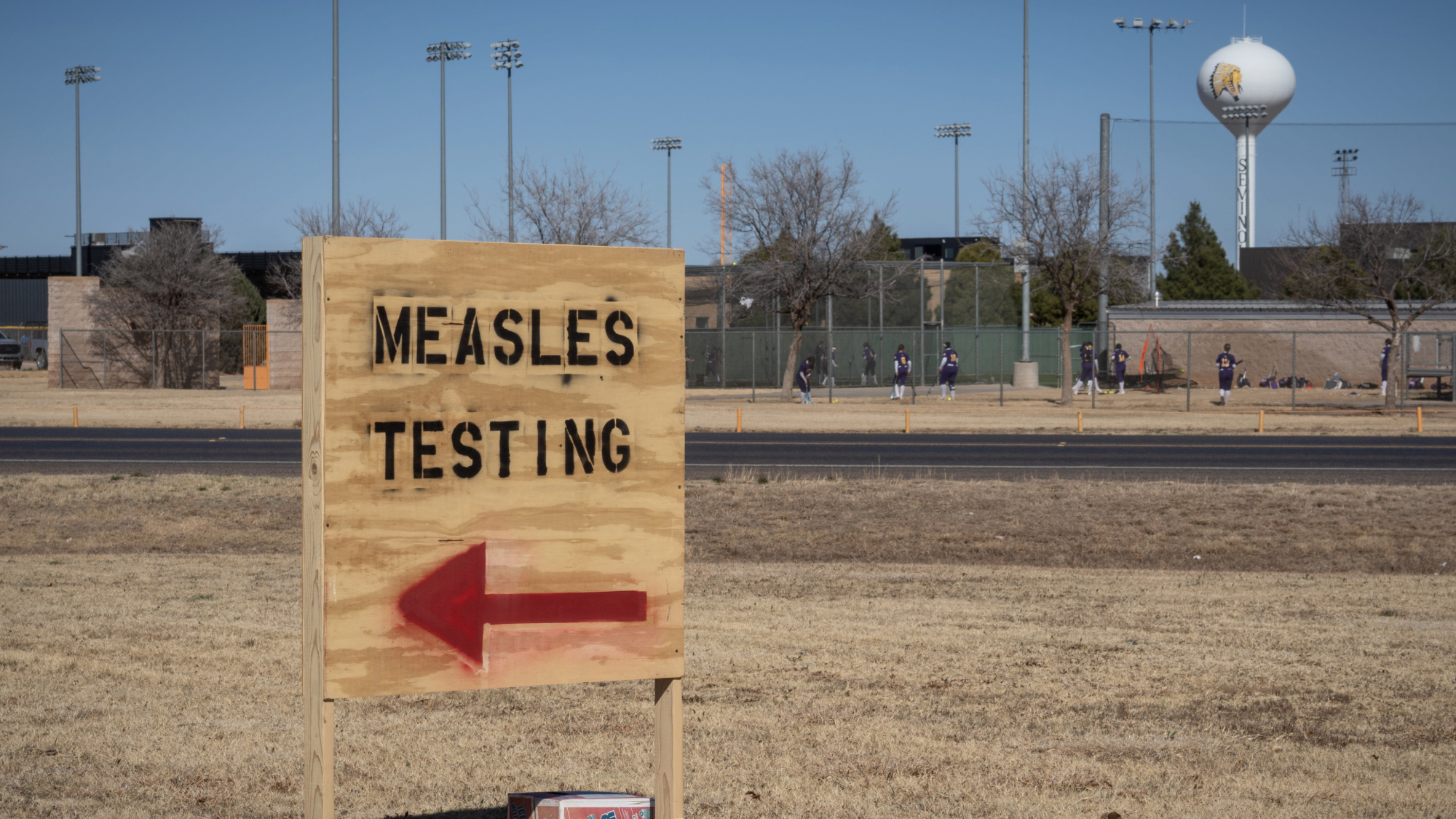RFK Jr. offers alternative remedies as measles spreads
Health secretary Robert F. Kennedy Jr. makes unsupported claims about containing the spread as vaccine skepticism grows


A free daily email with the biggest news stories of the day – and the best features from TheWeek.com
You are now subscribed
Your newsletter sign-up was successful
What happened
As a measles outbreak in West Texas and New Mexico continues to spread, Health and Human Services Secretary Robert F. Kennedy Jr. publicly "outlined a strategy for containing" the outbreak that "strayed far from mainstream science, relying heavily on fringe theories about prevention and treatments," The New York Times said Monday.
Who said what
The Texas outbreak, centered in an under-vaccinated Mennonite community in Gaines County, has infected at least 230 people in the state and a bordering county in New Mexico, and killed two unvaccinated patients. But "even a measles outbreak and death isn't enough to drive many residents into free vaccine clinics," The Wall Street Journal said. Local doctors are "fighting an uphill battle to convince some parents that vitamin A — touted by vaccine critics as effective against the highly contagious virus — will not protect their children," Reuters said. Tina Siemens, director of a museum in Gaines County, told the Journal that "the community loves" RFK Jr.
In an interview with Fox News last week, the Times said, Kennedy "cheered on questionable treatments like cod liver oil," which he called "the safest application of vitamin A," while issuing a "muffled call for vaccinations in the affected community," if people choose. There's "no way" the outbreak will convince vaccine skeptics to get their kids vaccinated, Gaines County physician Dr. Wendel Parkey told the Journal. "Before Covid I could convince some. Now it's like, forget it."
The Week
Escape your echo chamber. Get the facts behind the news, plus analysis from multiple perspectives.

Sign up for The Week's Free Newsletters
From our morning news briefing to a weekly Good News Newsletter, get the best of The Week delivered directly to your inbox.
From our morning news briefing to a weekly Good News Newsletter, get the best of The Week delivered directly to your inbox.
What next?
The National Institutes of Health, part of Kennedy's HHS, Monday canceled "dozens of grants for research on why some people are reluctant to be vaccinated and how to increase acceptance of vaccines," the Post said.
A free daily email with the biggest news stories of the day – and the best features from TheWeek.com
Peter has worked as a news and culture writer and editor at The Week since the site's launch in 2008. He covers politics, world affairs, religion and cultural currents. His journalism career began as a copy editor at a financial newswire and has included editorial positions at The New York Times Magazine, Facts on File, and Oregon State University.
-
 Why are election experts taking Trump’s midterm threats seriously?
Why are election experts taking Trump’s midterm threats seriously?IN THE SPOTLIGHT As the president muses about polling place deployments and a centralized electoral system aimed at one-party control, lawmakers are taking this administration at its word
-
 ‘Restaurateurs have become millionaires’
‘Restaurateurs have become millionaires’Instant Opinion Opinion, comment and editorials of the day
-
 Earth is rapidly approaching a ‘hothouse’ trajectory of warming
Earth is rapidly approaching a ‘hothouse’ trajectory of warmingThe explainer It may become impossible to fix
-
 Scientists are worried about amoebas
Scientists are worried about amoebasUnder the radar Small and very mighty
-
 Metal-based compounds may be the future of antibiotics
Metal-based compounds may be the future of antibioticsUnder the radar Robots can help develop them
-
 A Nipah virus outbreak in India has brought back Covid-era surveillance
A Nipah virus outbreak in India has brought back Covid-era surveillanceUnder the radar The disease can spread through animals and humans
-
 Is the US about to lose its measles elimination status?
Is the US about to lose its measles elimination status?Today's Big Question Cases are skyrocketing
-
 Mixed nuts: RFK Jr.’s new nutrition guidelines receive uneven reviews
Mixed nuts: RFK Jr.’s new nutrition guidelines receive uneven reviewsTalking Points The guidelines emphasize red meat and full-fat dairy
-
 Trump HHS slashes advised child vaccinations
Trump HHS slashes advised child vaccinationsSpeed Read In a widely condemned move, the CDC will now recommend that children get vaccinated against 11 communicable diseases, not 17
-
 Deaths of children under 5 have gone up for the first time this century
Deaths of children under 5 have gone up for the first time this centuryUnder the radar Poor funding is the culprit
-
 A fentanyl vaccine may be on the horizon
A fentanyl vaccine may be on the horizonUnder the radar Taking a serious jab at the opioid epidemic
